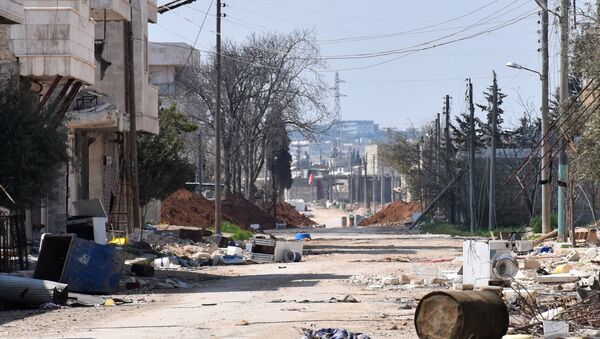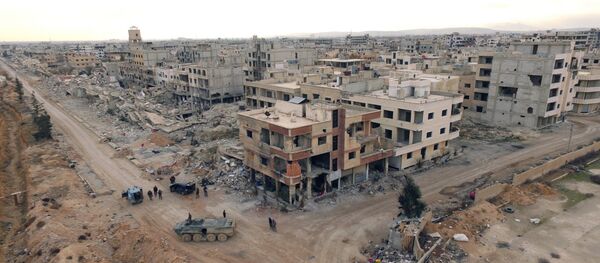The punitive measures of the West have severely restricted pharmaceutical imports, even though medical supplies are largely exempt from the imposed measures.
Lina Allouzi, a chief doctor of a government-run maternity hospital in Aleppo, revealed the dire situation in the medical institution.
"Up to 20 babies are being born in our maternity house daily. More girls are being born and this gives us joy and hope that peace will come here soon," Doctor Allouzi told journalists.
She said that even in these conditions the hospital can boast a radiology room, special equipment for medical examinations and a unique laboratory. All the services and medication provided by the medical facility are free of charge. Expectant mothers come there from all over the province and the medical personnel work flat-out.
"The microscope in the laboratory is out of order and I am really worried about the efficiency of the care units for premature babies," Doctor Allouzi said.
She noted that due to the sanctions imposed by the EU and the US, it is practically impossible to buy spare parts for the equipment produces in Germany, the US and France. Thus the country's handymen try to "resurrect" the expensive equipment.
The sanctions also blocked the supplies of medication to maternity hospitals, however Doctor Allouzi said that Syrian pharmacologists have been able to produce some medicine locally.
Interestingly enough, back in September 2016, the US-based news website The Intercept obtained a UN internal report which revealed that the US and European sanctions "blocked access to blood safety equipment, medicines, medical devices, food, fuel, water pumps, spare parts for power plants, and more."
"The August email from a key UN official warned that sanctions had contributed to a doubling in fuel prices in 18 months and a 40 percent drop in wheat production since 2010, causing the price of wheat flour to soar by 300 percent and rice by 650 percent," the website said.
The email went on to cite sanctions as a "principal factor" in the erosion of Syria’s health care system. Syria was once largely self-sufficient in pharmaceuticals, however medicine-producing factories that haven’t been completely destroyed by the fighting have been forced to close because of sanctions-related restrictions on raw materials and foreign currency, the outlet cited the email as saying.
In many respects, the situation resembles that in Iraq between 1990 and 2003 when UN sanctions destroyed the Iraqi economy and helped dissolve its society while doing nothing to reduce the power of Saddam Hussein as Iraqi leader. Many critics of Iraqi sanctions argue that the mass impoverishment they produced contributed significantly to the political and sectarian breakdown after the invasion of 2003.
US sanctions are even more extensive, imposing a blanket ban on exports to Syria or financial dealings with the country. This includes foreign produced goods of which the US content is more than 10 per cent of the value of the finished item. There are supposedly means available for purely humanitarian goods to reach Syria, but in practice this is not the case.
On May 29, 2017, the EU extended its restrictive measures against the Syria until June1, 2018.






